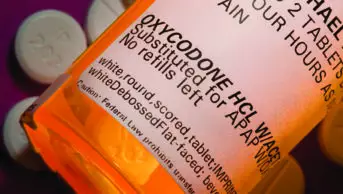
Shutterstock.com
Clinicians have questioned trial data which indicate that glucose lowering drugs might increase the risk of heart failure.
Analysis of data from 14 trials, published in The Lancet Diabetes & Endocrinology
[1]
on 16 March 2015, involving 95,502 patients suggests that, overall, glucose lowering drugs and other strategies to control glucose levels were associated with a slight increased risk of heart failure, compared with standard care (relative risk [RR] 1.14, 95% confidence interval [CI] 1.01–1.30; P=0.041). The absolute risk increase was 0.51%. Conversely, glucose lowering by various drugs or strategies modestly decreased the risk of myocardial infarction (P=0.017).
The study authors, led by Jacob A Udell, of the Peter Munk Cardiac Centre, Toronto General Hospital say that clinicians should weigh up the trade-off between ischaemic and haemodynamic cardiovascular events when choosing between different drugs or strategies for lowering blood glucose.
But Iwan van der Horst and Frederik Keus of the University of Groningen, Netherlands, claim in a commentary published alongside the research that the study is at risk of containing errors in design, analysis and bias.
“These risks of errors, and the substantial heterogeneity among included trials, suggest caution is needed before concluding that all glucose-lowering drugs and strategies in general are associated with an increased risk of heart failure,” they say.
The commentary authors also argue that all-cause mortality, which did not differ between glucose-lowering drugs/strategies and normal care (RR 0.99, 95% CI 0.94–1.05), should have been a primary outcome in the meta-analysis.
When heart failure risk was broken down by drug type, peroxisome proliferator-activated receptor agonists (PPARs) had the strongest association with heart failure (RR 1.42, 95% CI 1.15–1.76).
Six trials of PPARs, also known as thiazolidinediones, were included in the analysis. However, three of these trials were of rosiglitazone, which is no longer licensed because of the cardiovascular risk it poses. A fourth trial was of pioglitazone, which is contraindicated in heart failure. A fifth study examined aleglitazar, which is not yet licensed.
Two trials of dipeptidyl peptidase-4 inhibitors (DPP4) were included in the analysis: alogliptin and saxagliptin were found to have an intermediate association with heart failure compared with standard care (RR 1.25, 95% CI 1.08–1.45).
Insulin glargine, intensive glycaemic control strategies and intensive weight loss strategies were not associated with an increased risk of heart failure. But for every 1kg of weight gained there was an increased risk of heart failure of 7.1% (95% CI 1.0–13.6) compared with standard care (P=0.022). However, this association disappeared if data on PPARs were excluded.
References
[1] Udell JA, Cavender MA, Bhatt DL et al. Glucose-lowering drugs or strategies and cardiovascular outcomes in patients with or at risk for type 2 diabetes: a meta-analysis of randomised controlled trials. Lancet Diabetes & Endocrinology 2015. doi: http://dx.doi.org/10.1016/S2213-8587(15)00044-3.


